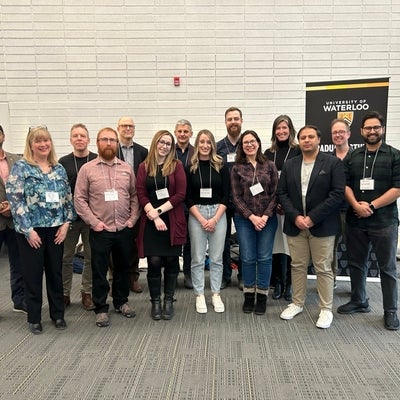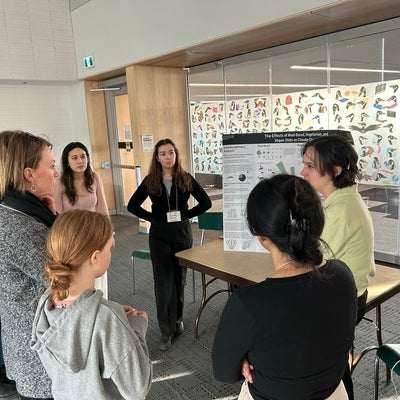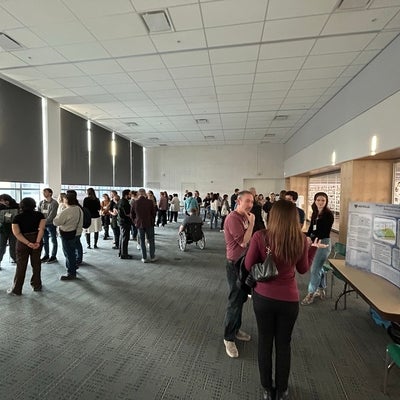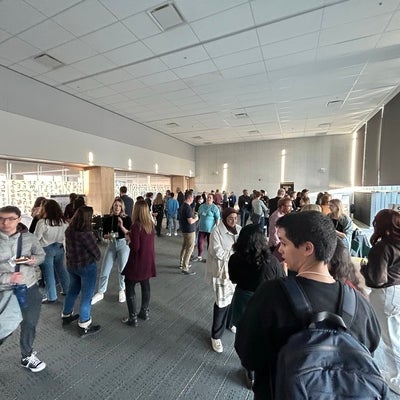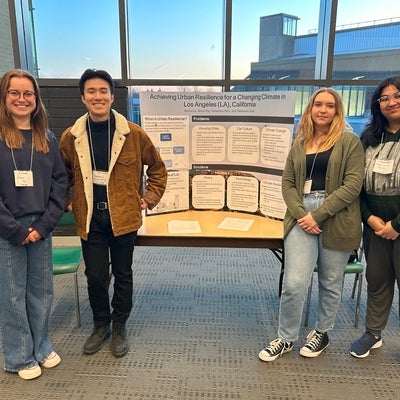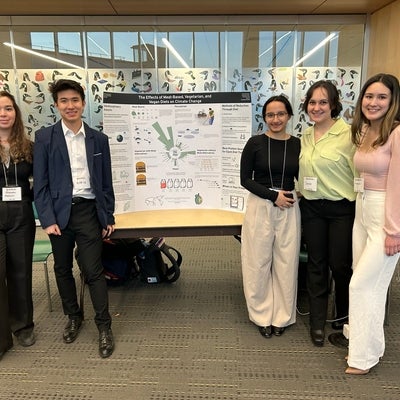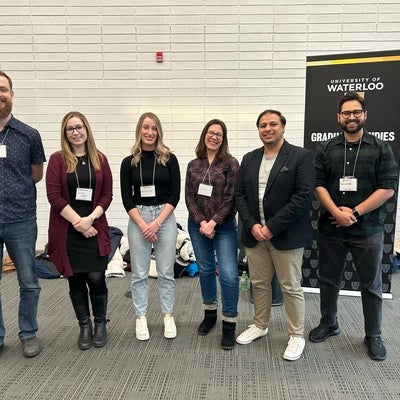On a sunny, Tuesday, March 28, 2023, Graduate Studies and Postdoctoral Affairs, in partnership with the Associate Vice-President, Academic, the Centre for Teaching Excellence, and the Beta Teaching Innovation Incubator, hosted the Wicked Problems of Climate Change symposium – an opportunity for undergraduate students in the Wicked Problems undergraduate course to showcase their final projects through poster presentations.
During the winter 2023 term, a pilot interdisciplinary undergraduate course was co-taught by six doctoral students, representing all six faculties at the University of Waterloo. The Wicked Problem of Climate Change course brought together the disciplinary expertise of both doctoral and undergraduate students, as they tackled one of the world's biggest and most complex problems. The development of this course is one aspect of a Beta Teaching Innovation Incubator project to advance Waterloo’s doctoral students’ professional development by engaging them in a unique co-taught, co-designed teaching experience and creating a suite of “wicked problem” courses for undergraduate students, taught by doctoral students.
The symposium was held in the Black and Gold Room of the Student Life Centre; it included an opportunity for undergraduate students to display their posters, depicting a climate change problem and the group’s proposed solution(s) to their identified “wicked (climate change) problem”. Group members were in attendance to speak about their projects to a captive audience that included undergraduate and graduate students, faculty members, senior leaders, and staff.
The event included remarks from Dr. Jeff Casello, Associate Vice-President, Graduate Studies and Postdoctoral Affairs (GSPA), who was also the emcee for the evening. Jeff extended his gratitude to the students for showcasing their work, and to the graduate students who not only taught the class but were instrumental in conceiving the content and delivery. The concept of this interdisciplinary course, as taught by six PhD students, was brought to fruition with the leadership of three associate deans, graduate studies: Dr. Anna Esselment (Faculty of Arts), Dr. Brian Laird (Faculty of Health), and Dr. Bertrand Guenin (Faculty of Mathematics), alongside the members of the Beta Teaching Innovation Incubator: Dr. Donna Ellis (Director, Centre for Teaching Excellence), and Dr. Kyle Scholz (Educational Developer, Research and Consulting). Dr. Kristin Brown (Educational Developer, TA Training and Writing Support) was also instrumental in designing and facilitating the training program for the instructors.
Dr. David DeVidi, Associate Vice-President, Academic, congratulated the group on being part of the inaugural project of the Beta Teaching Innovation Incubator; “It takes a village to make a course”, Dr. DeVidi shared, highlighting the work of the doctoral student instructors and CTE’s educational developers, who worked together to co-design and co-develop the course. The behind-the-scenes work included the group of talented individuals as mentioned above, and the willingness of the undergraduate students to be involved in a pilot course. The outcome is outstanding; Dr. DeVidi is looking forward to future wicked problem course iterations addressing world problems and hearing about the proposed solutions.
Fayaz Noormohamed, Senior Director, Strategy and Implementation, also brought congratulations from the Office of the President, celebrating the interdisciplinarity of the course, and allowing undergraduate students opportunities such as this to work across faculty boundaries to solve a complex problem.
Putri Cullinane, Faculty of Environment, spoke as the undergraduate student representative, sharing what an invaluable experience it has been to bring her environmental passion to the classroom for this course, learn from other students in different fields and hear their take on this important topic.
To cap off the night of celebrations, the group heard from the PhD students, who were grateful for their opportunity to learn from CTE colleagues, each other, and from the undergraduate students.
Click on the photos below to read the captions, enlarge the images and toggle through the slideshow.
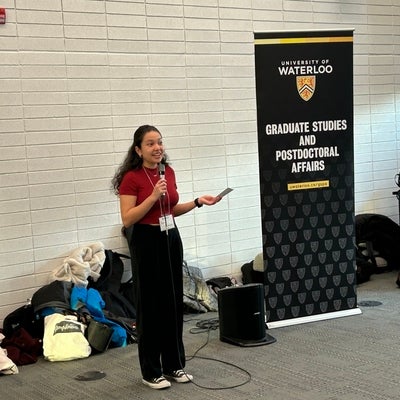
Putri Cullinane, and Undergraduate student from the Faculty of Environment speaks as the undergraduate student representative, sharing what an invaluable experience it has been to bring her environmental passion to the classroom for this course, learn from other students in different fields and hear their take on this important topic.



